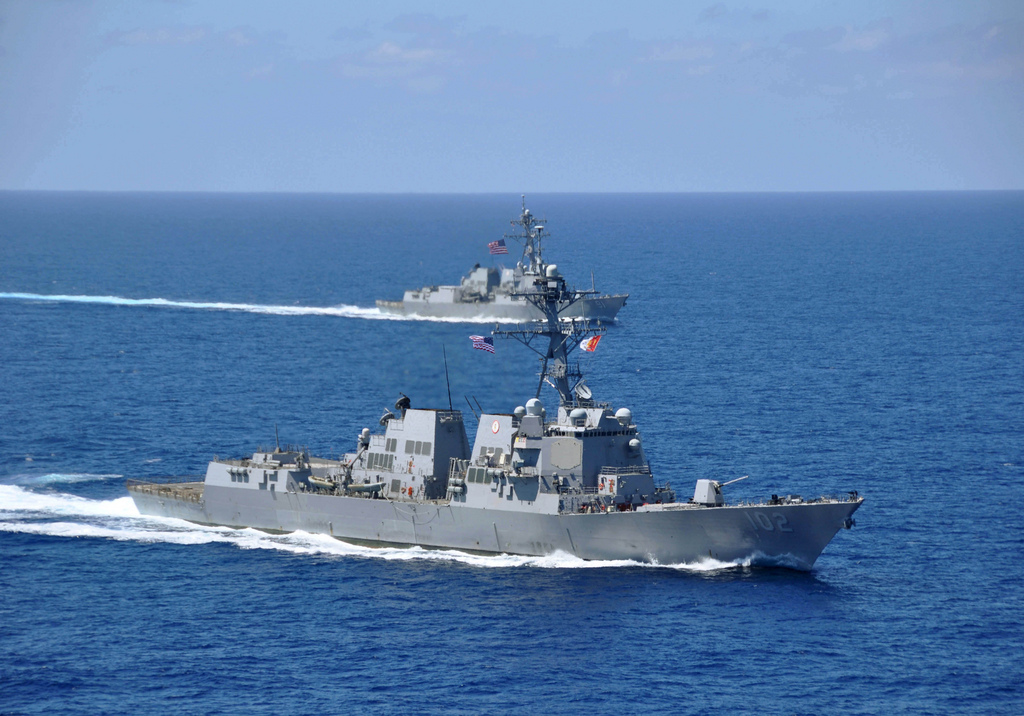
The United States Must Sign and Ratify the U.N. Convention of the Law of the Sea
In May, President Obama stood before newly commissioned Army officers at the United States Military Academy and called on the Senate to ratify the U.N. Convention of the Law of the Sea (UNCLOS). This appeal is not new. Presidents Clinton and Bush both understood the importance of this treaty, and since the Convention opened for signature in 1982, our top military leaders have said that ratification is in the direct interest of U.S. national security. The Senate, however, will not act.
One hundred and sixty-two countries, including China and Russia, are signatory to the treaty that governs the world’s oceans. It is worth noting that seven coastal nations, including Syria and Venezuela, join the United States in refusing the accord. The Senate’s rejection of this important treaty has led top decision and policy makers to operate under the spirit of the law. This means that the United States abides by the rules and regulations of the treaty while forfeiting the legal rights, privileges and protections – most importantly those dealing with freedom of navigation, territorial and economic zones and dispute mediation.
As a former active duty Naval Officer, I say that it is time to move forward. During my time at sea in the Western Pacific Ocean, I not only witnessed the rising tensions between the U.S. and China, but I have also seen how disputes over territories like the Parcel and Senkaku Islands and the Scarborough and Thomas Shoals have eroded regional security and stability among countries like the Philippines, Vietnam, Indonesia, China and Japan. As these Pacific nations increase military spending budges and engage in hawkish rhetoric, the United States must establish itself as a credible advocate of peace and security. Not participating in UNCLOS directly undermines our ability to do this. As the President recently stated: “It’s a lot harder to call on China to resolve its maritime disputes under the Law of the Sea Convention when the United States Senate has refused to ratify it.”
As the world watches a standoff develop in the South China Sea, the United States must stay focused on future threats. In the newly released National Climate Assessment, experts say that warm conditions in the Arctic will yield new sea-lanes through the region by 2030. By mid century, models predict that the region will be largely ice-free. In simple terms, the United States government must do something that it has never done. Plan for a new ocean.
If the situation in the South China Sea is to be used as a model, the rush to claim new territory and establish land boundaries for the purpose of oil, gas and mineral exploration will stress already fragile relationships between Arctic nations. In particular, Russia and the United States will once again find themselves in a race for regional power and influence.
In Washington, DC, military, diplomatic, and national security planners recognize this fact and are already formulating new strategies and policies to prepare for this challenge. The United States Congress should also do its part. With all Arctic countries bound by UNCLOS, nations can enter into this new geopolitical scenario with established and tested rules. Not having “rules” by which to operate has the potential to elevate tensions between the United States and Russia to levels not seen since the Cold War.
Regardless of how our politicians feel about UNCLOS, the United States will be faced with an ice-free Arctic ocean by 2050. The United States will also be force to engage with Russia – and other Arctic countries – in new ways. If U.S. lawmakers want to maintain the American advantage, they must do what the Pentagon, the State Department and the National Security Council are already doing: understand future challenges facing this country and ensure America is adequately prepared to confront them.
The United State’s Senate role in this is ratifying the Convention of the Law of the Sea.








[…] The United States Must Sign and Ratify the U.N. Convention of the Law of the Sea Jon Breed By mid century, models predict that the region will be largely ice-free. In simple terms, the United States government must do something that it has never done: Plan for a new ocean. […]
[…] The United States Must Sign and Ratify the U.N. Convention of the Law of the Sea Jon Breed By mid century, models predict that the region will be largely ice-free. In simple terms, the United States government must do something that it has never done: Plan for a new ocean. […]
The Arctic region will not be largely ice-free by mid-century. Sure, the northern passages will be open for a few weeks to even months, but the idea of a shipping lane to rival Panama of Suez is highly improbable. Still, I agree – we must ratify UNCLOS. I wonder, just why is the Senate unwilling to ratify it?